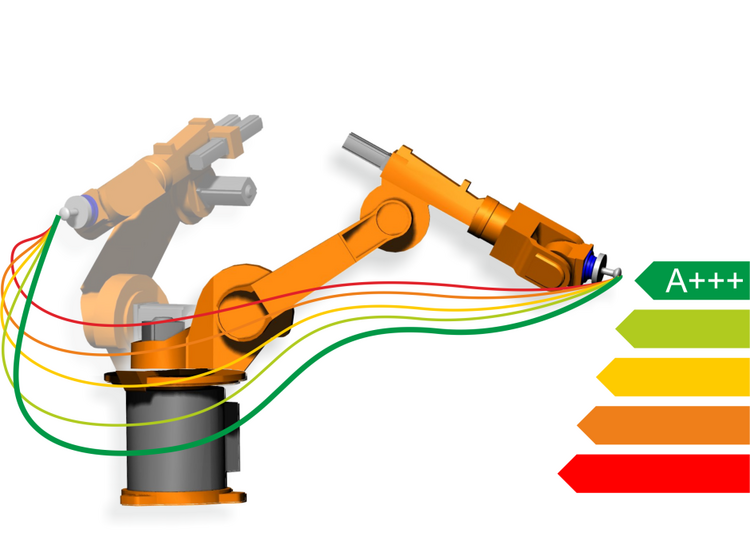Design of Energy Efficient Mechatronic Systems based on Automated Controller Synthesis and Trajectory Planning

| Team: | M. Sc. Elias Knöchelmann |
| Year: | 2013 |
| Funding: | German Research Foundation (DFG) |
| Is Finished: | yes |
Due to constantly rising energy prices, the energy efficiency of mechatronic systems, e. g. in industrial manufacturing, is an increasingly important factor. One possibility for energy savings in multi-axis systems is the re-use of recuperated braking energy of single manipulator axes to simultaneously supply other axes in the system. Many multi-axis systems, e. g. automated production systems, already provide the technical requirements to support such a re-use - the challenge lies in the development of optimized software that coordinates the processes in an energy-efficient way. We already developed methods for the planning of energy-efficient trajectories of multi-axis systems. Energetically optimal motion profiles for point-to-point movements of single- and/or multi-axis manipulators can be calculated under consideration of moving loads, friction effects, etc. The existing methods can already yield significant energy savings. However, in systems that combine multiple single- and multi-axis manipulators, the energy saving potential can currently not be fully exploited. The reason is that current methods cannot consider a possible rearrangement of movement sequences on the level of the discrete control process. This would lead to an explosion in the complexity of the optimization problem. Moreover, the current approaches cannot consider the complex and sometimes critical requirements that may be imposed on the movement sequences. In this inter-disciplinary research project, we therefore plan the development of a new method for the design of energy-efficient mechatronic systems, which couples the methods for the energy-optimized trajectory planning and methods for the automatic synthesis of discrete controllers. This method shall already be employed during the design of the discrete control process. Here, the engineers must consider all the requirements of the discrete system behavior; but, at the same time, they should not over-constrain possible alternative control sequences. We support engineers in this task by a specification method, which was elaborated in previous work, allowing them to describe, in the form of scenarios, what a system can, must, or must not do. From such a specification, we can then compute valid discrete controller implementations algorithmically. We extend this approach such that, by initially including coarse assumptions of energy consumed and regenerated by individual axis movements, we can synthesize energy-efficient discrete controllers. If during this process it must be decided between alternative movement sequences that appear similarly efficient, we plan to integrate the energy-efficient trajectory planning approach to choose the most efficient movement sequence based on a more detailed model. By considering the system behavior on different levels, we will enable engineers to more extensively exploit energy saving potentials. We will develop and evaluate this design methodology based on an example case study.

